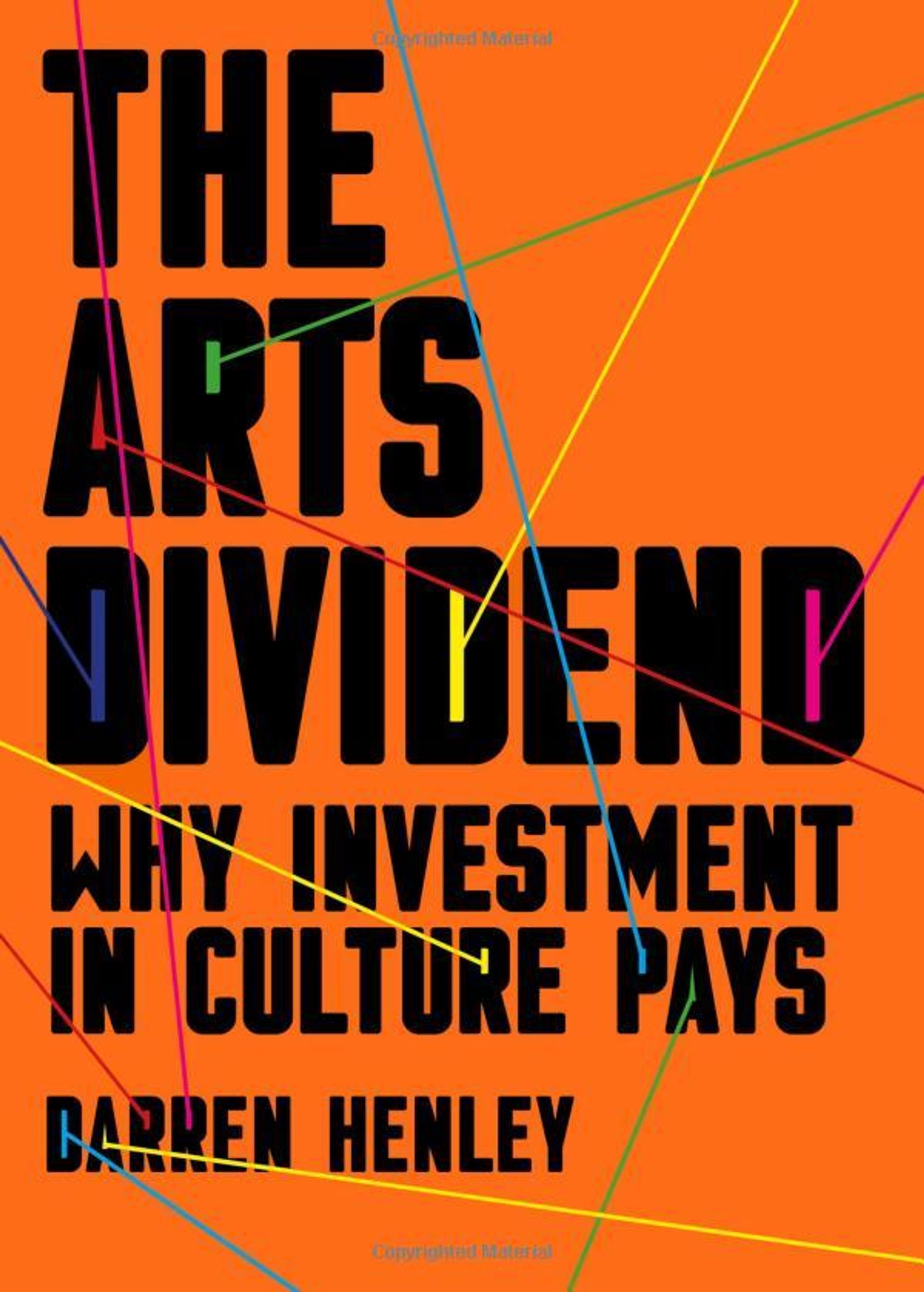Darren Henley is the chief executive of Arts Council England, and The Arts Dividend: Why Investment in Culture Pays is intended as a manifesto for his tenure—his “personal reflections on England’s arts and cultural landscape”. A pious intonation of the well-worn mantras of the arts establishment, it argues that the arts are good for the economy; they make us happy, well-adjusted citizens; they transform lives and regenerate towns and cities. No longer a luxury, or objects of beauty for us to contemplate and reflect on, the arts are hard at work, and essential to everyday life.
For the arts to do their magic on us... just add funding and watch the dividends roll in. Henley identifies seven of them: the learning dividend (arts students as more employable, more likely to vote), the feel-good dividend (art as a therapeutic drug, cheaper than the NHS), innovation (digital pandering to millennials), place-shaping (Margate, Margate everywhere), enterprise (the benefits of a—very broadly defined—creative economy) and reputation (arts and culture as cost-effective marketing).
But the dividend that underpins them all, the one ring to bind them? Creativity. On the one hand, creativity is, of course, central to the arts and, according to Henley, something we all have, so the only trick is to get more of us involved. We must have, we are told, “a more inclusive and diverse art and culture sector”. That means, of course, more identity profiling and diversity box-ticking to access arts investment. This creativity dividend quickly reveals itself as a politicised handout and makes a mockery of Henley’s argument that it is great art that makes the greatest difference.
In keeping with his belief that art and culture “do” something to people, Henley is currently enthusiastically tweeting the awesomeness of Hull, this year’s UK City of Culture. Hull is a “gateway to Europe, a city connected to a globalised, digital world… a place of migration and transition… [on an] unfinished global journey towards equality and social justice for all”. This may surprise the 67% of Hullians who voted Leave in the referendum last summer. Some might even resent being on the sharp end of the instrumentalisation of the arts in the service of such blatant social engineering. They will certainly be surprised by the artistic content of the City of Culture programme: for example, Meet Fred, an event featuring a “2ft-tall cloth puppet who fights prejudice every day”, among other moralising delights. As for its ability to pay out big dividends to the citizens of Hull, we can at least say it’s still too early to tell.
If nothing else, The Arts Dividend is a good introduction to the kind of thinking demolished by the Wall Street Journal’s Sohrab Ahmari in his polemic against the identity-politicisation of the arts. Ahmari shows just how illiberal, single-track and dogmatic such a worldview is. Many of Ahmari’s examples are beyond satire, but are now all too recognisably mainstream, such as Jamie McCartney’s plaster casts of 400 vulvas, Great Wall of Vagina, which serve to “quell anxieties about female body image”. His other examples show up just how far the arts establishment and the cultural elites more broadly have made the “queer”, the countercultural and the shocking into a new normal: the recent non-judgmental non-standard for an anti-elitist elite, according to which whatever panders to and “validates the narratives, identities and feelings of ‘marginalised’ groups or, conversely, lays bare the injustices of the ‘mainstream’” becomes “great art”.
Shame on Arts Council England and its supporters that it takes an Iranian émigré from a police state to remind us that beauty and truth are the language we should use when talking about arts and culture. But thank goodness for the power of the Western tradition that continues to inspire those who are willing to take it seriously as something to be treasured and conserved for the next generation.
• Angus Kennedy is the convenor of the Institute of Ideas’ summer academy. He is the author of Being Cultured: in Defence of Discrimination (2014)

The Arts Dividend: Why Investment in Culture Pays
Darren Henley
Elliott & Thompson, 192pp, £12.99 (pb)
The New Philistines
Sohrab Ahmari
Biteback Publishing, 128pp, £10 (hb)

